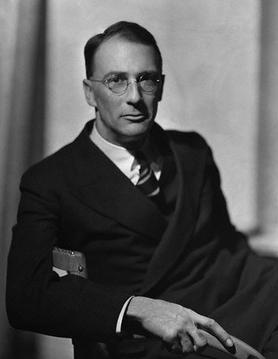As a literature professor, much of my reading involved preparing to teach my classes or to stay up with my discipline. So some years ago, I resolved to make a point of also reading for pleasure, so as to remind myself why I got into this profession in the first place.
My problem is that, as a literature professor, my standards are high, so the pleasure reading has to be really well-written. The Aubrey/Maturin series by Patrick O’Brian met my criteria, and after reading all of those wonderful seafaring novels, I craved more. So I turned to the 10-book Hornblower saga by C. S. Forester. In many ways, I liked these novels even better than O’Brian’s, with their moody, introverted hero, full of self-doubts while always succeeding brilliantly, their exciting action scenes, and their twisty plots.
Forester was also the author of The Good Shepherd, a WWII tale of a destroyer captain whose job is to shepherd merchant ships across the Atlantic and to battle the German submarines that are trying to sink them. The novel has a special interest for many readers of this blog because its central character is one of the few fully-realized Lutherans in English literature, and that Lutheranism is developed in detail and sympathetically portrayed.
In the midst of his tension-filled mission and outbreaks of combat, Commander George Krause prays, reads his Bible, and employs Luther’s devotions. As we go inside his mind and point of view, we find that Scripture verses are always popping up in his head, and that he is constantly struggling with the sense of his sinfulness and his limits over against his faith. (Luther called this kind of spiritual trial Anfechtungen.)
I appreciate my fellow Patheos blogger Chris Gehrz for reminding me of this novel in his post The Good Shepherd. He discusses the recent movie version of Forester’s novel, The Greyhound, starring Tom Hanks. I don’t have Apple TV+, where it’s streaming, so I haven’t seen the movie. So I’m grateful to Prof. Gehrz for his comparison of the movie with the book and for his thoughtful analysis of both of them.
As one might expect, the movie tones down the religious focus of the book, but the Lutheranism is still there. Commander Krause (his name changed to Ernie, for some reason), prays Luther’s morning and evening prayers and says grace before his meals, which are always interrupted. There is a bit about a picture of Jesus he has in his quarters. But, as Prof. Gehrz says, that’s nothing compared to what we find in the novel, as he illustrates.
One detail that he cites especially stands out to me. In the movie, Commander Krause stops his pursuit of a German U-boat in order to pick up survivors of an earlier attack. But in the novel, he does not! The movie evidently interprets Commander Krause’s faith in terms of conventional Christian piety and good works. But the destroyer captain has apparently read Luther’s treatise Whether Soldiers Too Can Be Saved. Serving in the military is indeed, says Luther, a legitimate calling from God, a sphere in which a Christian can love and serve his neighbor, even when that requires fighting and killing.
That made me realize that the larger theme in The Good Shepherd is vocation. Through all of the difficult choices Commander Krause has to make, in all of his struggles, his bravery, and his heroism, he is committed to doing his duty. He would have learned to do that in the Small Catechism, which teaches about vocation in its Table of Duties.
This, in turn, made me realize that the Hornblower saga is also about vocation! The ten novels follow the entire career of Horatio Hornblower during the Napoleonic wars, from being a young Midshipman, to his rise in rank to Lieutenant, to commanding his first vessel, to becoming a captain, then a captain of ever-bigger ships, then a commodore in charge of multiple ships, then an admiral, and finally to retirement, in which he has his most remarkable encounter with his enemy. At every stage, he has to figure out how to fulfill his new office, overcomes obstacles, and gains new understandings of what it means to do his duty.
Most striking is what we see in Mr. Midshipman Hornblower, in which Horatio is an inexperienced teenager suddenly elevated to the authority of an officer in the Royal Navy, the lowest rung, to be sure, but he finds himself in charge of rough and rowdy adult sailors, having to command those in his charge, which entails winning them over to his leadership. As he does so, and as he endures being bullied by his fellow midshipmen and engages in combat, we see Horatio developing a crucial quality for the military vocations, a sense of honor.
A good collection to show the development of this sense of vocation is the Young Hornblower Omnibus, which includes the first three novels in the series: Mr. Midshipman Hornblower, Lieutenant Hornblower, and Hornblower and the Hotspur (his first command). Later Hornblower books have some non-explicit adultery–which is also about vocation, since he is sorely tempted but determines to hold to his marriage–and other adult-level material, but these early books strike me as appropriate for teenagers, especially teen-aged boys, who will relate to them and will love them. And so will anyone who wants to read for pleasure, while also learning something, even beyond how to sail a frigate.
Photo: C. S. Forester, By Source, Fair use, https://en.wikipedia.org/w/index.php?curid=33436168














